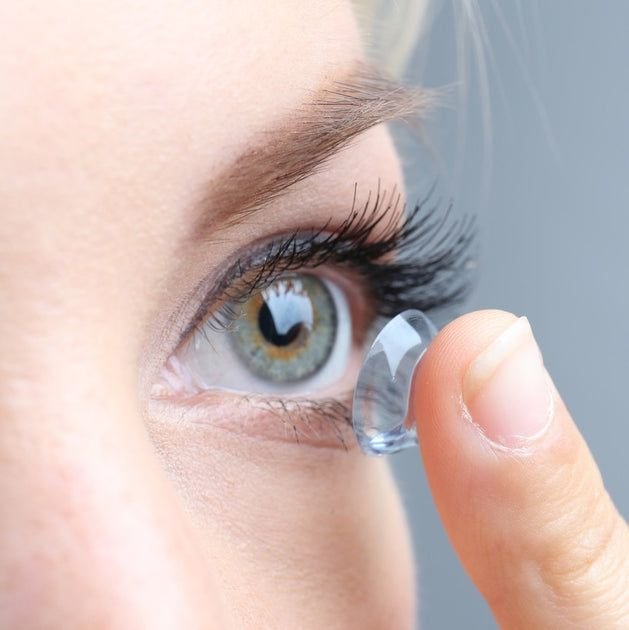
Overview
A contact lens is a thin, curved lens placed directly on the surface of the eye to correct vision problems such as myopia (nearsightedness), hyperopia (farsightedness), astigmatism, and presbyopia. Contact lenses serve as an alternative to eyeglasses and offer the advantage of a wider field of vision, freedom of movement, and improved aesthetics, especially for those involved in sports or active lifestyles. Made from soft or rigid gas-permeable materials, contact lenses are designed to be comfortable and allow oxygen to pass through to the cornea, ensuring eye health. They are available in daily, weekly, or monthly disposable forms, as well as in colored or specialty lenses for cosmetic or medical purposes. When properly fitted and maintained, contact lenses provide a safe, effective, and convenient solution for vision correction.
How Its Works?
A contact lens works by correcting the way light enters the eye, similar to how eyeglasses do, but it sits directly on the surface of the eye, specifically the cornea. When placed properly, the lens floats on a thin layer of natural tears and moves slightly with each blink, staying centered on the eye. The lens has a specific curvature and prescription that helps focus incoming light correctly onto the retina at the back of the eye, resulting in clear vision. Depending on the vision problem—such as myopia, hyperopia, or astigmatism—the shape and design of the lens are adjusted accordingly. Because contact lenses move with your eyes and cover a wider area than glasses, they offer a more natural field of vision and reduce visual distortions.
 Contact lenses offer several benefits for individuals needing vision correction. One of the main advantages is that they provide a wider and more natural field of view since they move with the eye and sit directly on the cornea, eliminating the frame obstruction experienced with eyeglasses. They are especially convenient for people with active lifestyles or those involved in sports, as they do not fog up, fall off, or get in the way during physical activities. Contact lenses are also available in various types, such as daily disposables, extended-wear, and colored lenses, offering flexibility and cosmetic appeal. Additionally, they can provide better visual correction for certain conditions like astigmatism and irregular corneas, where glasses may not be as effective. With proper care and hygiene, contact lenses are a comfortable, safe, and discreet option for clear vision.
Contact lenses offer several benefits for individuals needing vision correction. One of the main advantages is that they provide a wider and more natural field of view since they move with the eye and sit directly on the cornea, eliminating the frame obstruction experienced with eyeglasses. They are especially convenient for people with active lifestyles or those involved in sports, as they do not fog up, fall off, or get in the way during physical activities. Contact lenses are also available in various types, such as daily disposables, extended-wear, and colored lenses, offering flexibility and cosmetic appeal. Additionally, they can provide better visual correction for certain conditions like astigmatism and irregular corneas, where glasses may not be as effective. With proper care and hygiene, contact lenses are a comfortable, safe, and discreet option for clear vision.